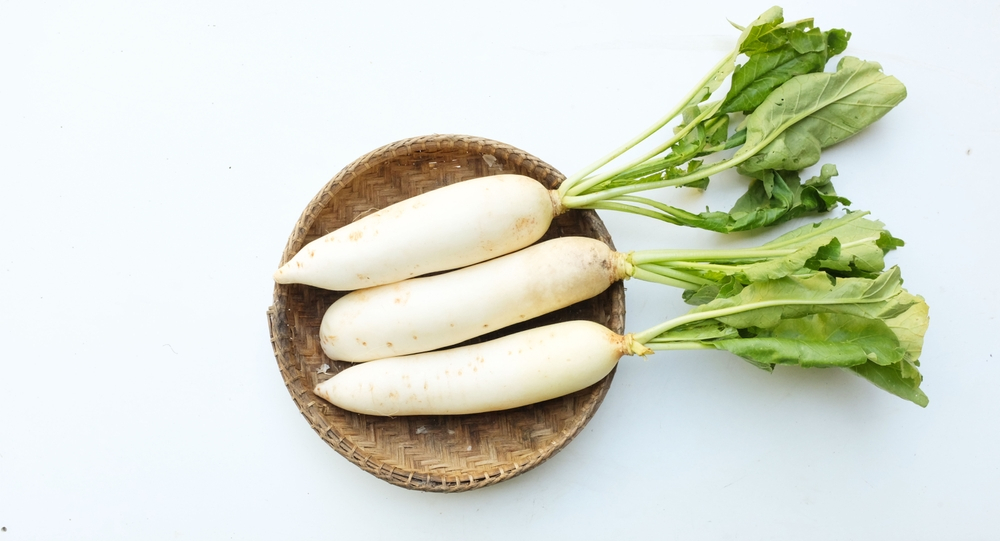- Home /
- Mediterranean Diet vs Keto: Which is Best for Weight Loss and Health?

Posted On:April 30th, 2024
Mediterranean Diet vs Keto: Which is Best for Weight Loss and Health?
In nutrition and weight management, two diets often dominate the conversation: the Mediterranean Diet and the Ketogenic (Keto) Diet. Both have garnered a large following due to their reported health benefits and effectiveness in weight loss. However, they fundamentally differ in their approach to healthy eating. Here, we compare these two popular diets to determine which might be the best for weight loss and overall health.
The Mediterranean Diet
The Mediterranean Diet is inspired by the eating habits of countries bordering the Mediterranean Sea, like Italy and Greece. It emphasizes a high intake of vegetables, fruits, legumes, nuts, seeds, and whole grains.
- Olive oil is the primary source of fat, praised for its heart health benefits. Moderate fish, krill meat, seafood, and poultry are included, and red meat consumption is limited.
- Dairy products are consumed in moderation, mostly as cheese and yogurt. The diet also permits an occasional glass of red wine, aligning with its emphasis on enjoying meals socially.
This diet is high in fiber, rich in healthy fats, and contains moderate protein. It’s low in processed foods and sugar, which aligns with broader dietary guidelines for health and longevity. The Mediterranean Diet has been linked to numerous health benefits, including a reduced risk of heart disease, stroke, type 2 diabetes, and certain types of cancer.
The Ketogenic Diet
In contrast, the Keto Diet is a low-carbohydrate, high-fat diet that drastically reduces carbohydrate intake and replaces it with fat. This reduction in carbs puts your body into a metabolic state called ketosis, where fat from your diet and your body is burned for energy.
- The typical keto diet includes a lot of meat, poultry, fish, eggs, higher-fat dairy (like cheese and butter), oils, and non-starchy vegetables. It limits or eliminates most grains, legumes, fruits, bread, sweets, pasta, and starchy vegetables.
- One of the primary goals of the keto diet is weight loss. Reducing carbohydrates forces the body to use fat as its primary fuel source.
This diet is also researched for its role in managing and treating certain medical conditions, including epilepsy, type 2 diabetes, and sometimes, cancer.
Weight Loss and Health Benefits
Both diets offer effective strategies for weight loss; the Mediterranean Diet supports heart health and reduces chronic disease risks, while the Keto Diet can lead to rapid weight loss and may improve blood sugar control.
Weight Loss
Both diets can be effective for weight loss, but they work differently. The Mediterranean Diet encourages a diverse range of nutrients and prioritizes long-term changes in eating habits, making it easier to stick to for longer periods. On the other hand, the Keto Diet often results in quicker weight loss due to the dramatic reduction in carbohydrate intake and the ketosis process, which can rapidly reduce body fat.
Health Benefits
The Mediterranean Diet is renowned for its long-term health benefits, improving heart health and reducing the risk of chronic diseases. It is rich in antioxidants in fruits and vegetables, healthy fats from olive oil and nuts, and various nutrients from a balanced approach to meat and dairy.
The Keto Diet has also shown benefits in improving triglyceride and HDL levels, lowering blood sugar levels, and reducing insulin resistance, which can be particularly beneficial for those with type 2 diabetes or metabolic syndrome. However, it can be restrictive and difficult to maintain, and there are concerns about its long-term effects, particularly regarding heart health due to the high intake of saturated fats.
Lifestyle and Adherence
The Mediterranean Diet promotes a balanced and sustainable eating pattern, enhancing long-term adherence and lifestyle quality. In contrast, the Keto Diet requires strict carb restriction, which can be challenging to maintain over time.
Mediterranean Diet
The Mediterranean Diet is not only about food but also about lifestyle. It promotes regular physical activity, sharing meals with others, and eating a balanced variety of foods. This holistic approach makes it more sustainable and easier to adhere to as a lifelong eating plan.
Keto Diet
The Keto Diet requires strict adherence to low carbohydrate intake, which can be challenging to maintain. It often requires significant changes to one’s eating habits and lifestyle, and there can be side effects during the adaptation phase, such as the “keto flu,” which includes symptoms like headache, fatigue, and irritability.
What Can You Eat on the Keto Diet and the Mediterranean Diet?
Both the Keto Diet and the Mediterranean Diet have specific guidelines about what you can eat. These diets differ significantly in their approach and focus, particularly regarding macronutrient distribution (fats, proteins, carbohydrates). Here’s a detailed look at what you can eat on each diet:
Keto Diet
The Keto Diet focuses on high fat, moderate protein, and low carbohydrate intake. The goal is to enter a state of ketosis, where the body burns fat for fuel instead of carbohydrates. Here are the main foods you can eat on the Keto Diet:
- Fats and Oils: Coconut oil, olive oil, avocado oil, butter, and ghee are staples for cooking and adding to foods to increase fat content.
- Proteins: Meat (beef, pork, poultry), fatty fish (such as salmon, mackerel, and sardines), eggs, and some full-fat dairy products (such as cheese and cream).
- Low-Carb Vegetables: Leafy greens (spinach, kale), above-ground vegetables (broccoli, cauliflower), and other low-carb vegetables like zucchini and bell peppers.
- Nuts and Seeds: Almonds, walnuts, flaxseeds, pumpkin seeds, and chia seeds.
- Dairy: High-fat dairy products, including cream, cheese (cheddar, goat, cream, blue, or mozzarella), and unsweetened yogurt.
- Avocados: Whole avocados or freshly made guacamole.
- Condiments: Salt, pepper, herbs, and spices.
Foods to avoid include grains, sugar (soft drinks, fruit juices, cakes, ice cream), fruits except small portions of berries, beans, legumes, and root vegetables (potatoes, carrots).
Mediterranean Diet
The Mediterranean Diet emphasizes eating primarily plant-based foods and incorporating a variety of nutrients and food groups. Here’s what you can eat:
- Vegetables: There is a wide range, including leafy greens, tomatoes, broccoli, cucumbers, bell peppers, onions, and carrots.
- Fruits: Apples, oranges, pears, strawberries, grapes, dates, figs, melons, peaches.
- Nuts and Seeds: Almonds, walnuts, sunflower seeds, and more are good sources of fat. Nuts replace most animal fats.
- Legumes: Beans, lentils, pulses, and peas.
- Whole Grains: Whole oats, brown rice, rye, barley, corn, whole wheat, whole-grain bread, and pasta.
- Fish and Seafood: Salmon, sardines, trout, tuna, mackerel, shrimp, oysters, clams, crab, and mussels.
- Poultry: Chicken, duck, turkey (moderate amounts).
- Dairy: Cheese, yogurt (preferably from goats or sheep).
- Herbs and Spices: Garlic, basil, mint, rosemary, sage, nutmeg, cinnamon, pepper.
- Oils: Olive oil is the primary source of dietary fat.
Alcohol, particularly red wine, is consumed in moderation, usually with meals.
Commonalities and Differences
Commonalities: Both diets emphasize whole foods, limit processed foods and added sugars, and encourage healthy fats. They also promote the consumption of various vegetables and include proteins from animal and plant sources.
Differences: The main difference lies in the macronutrient distribution—Keto is very low in carbs and high in fats. At the same time, the Mediterranean diet is balanced with a higher proportion of carbohydrates and healthy fats but moderate in protein and fat intake.
Both diets can be healthy choices depending on your health goals, dietary preferences, and lifestyle. The Mediterranean diet has broader acceptance among nutrition experts for long-term health and sustainability. In contrast, the Keto diet is often targeted towards quick weight loss or specific metabolic health objectives.
Benefits and side effects of Mediterranean Diet and Keto Diet
Benefits |
Mediterranean Diet |
Keto Diet |
| Reduces risk of heart disease and stroke | Rapid weight loss |
| Associated with a lower risk of certain types of cancer | It may reduce blood sugar and insulin levels, which is beneficial for managing type 2 diabetes |
| Lowers risk of Alzheimer’s disease and Parkinson’s disease | Can improve symptoms of epilepsy in children and adults |
| Promotes longevity and overall health | It may help with certain neurological disorders and cancer |
| Encourages a balanced and diverse intake of nutrients | This may lead to a reduction in triglycerides and an increase in HDL cholesterol |
| Often easier to adhere to due to the variety and inclusiveness of different food groups | Induces a state of ketosis, which can significantly suppress appetite |
Side Effects |
Mediterranean Diet |
Keto Diet |
| It can be high in sodium due to processed meats and cheeses (if not chosen wisely) | Keto flu (initial symptoms include headache, fatigue, nausea, and irritability due to low-carb intake) |
| May not provide sufficient dietary guidelines for weight loss without portion control or calorie counting | Risk of nutrient deficiencies due to restricted intake of fruits, vegetables, and whole grains |
| This may include higher carbohydrate levels that could affect people with certain metabolic diseases | May increase LDL cholesterol levels and long-term heart disease risk due to high saturated fat intake |
| It can be difficult to sustain long-term and may lead to yo-yo dieting. | |
| Potential for liver and kidney issues due to high fat and protein load |
Sample Menu for Mediterranean Diet and Keto Diet
To provide a better understanding of what meals might look like on the Mediterranean Diet and the Keto Diet, here’s a sample one-day menu for each:
Mediterranean Diet Sample Menu
Breakfast:
- Greek yogurt topped with chopped nuts (such as almonds or walnuts), a drizzle of honey, and a handful of berries.
Lunch:
- Grilled vegetable salad with fresh vegetables (bell peppers, zucchini, onions, tomatoes) tossed in extra virgin olive oil and feta cheese, served with whole-grain bread.
Snack:
- A small handful of olives and a piece of fruit (like an apple or orange).
Dinner:
- Baked salmon with a side of quinoa and a mix of steamed vegetables (carrots, broccoli, and cauliflower).
- A glass of red wine (optional).
Dessert:
- A small serving of dark chocolate.
Keto Diet Sample Menu
Breakfast:
- Omelette made with three eggs, spinach, mushrooms, and shredded cheese, cooked in butter.
Lunch:
- Cobb salad with grilled chicken breast, bacon, avocado, cheese, and hard-boiled eggs, dressed with a high-fat, low-carb vinaigrette.
Snack:
- Celery sticks with almond butter.
Dinner:
- Beef steak cooked in butter served with asparagus sautéed in olive oil.
Dessert:
- A serving of homemade whipped cream with a few raspberries.
Conclusion
Choosing between the Mediterranean Diet and the Keto Diet depends on individual needs, health conditions, and weight loss goals. For those seeking a balanced approach to eating that can be sustained over a lifetime, the Mediterranean Diet may be the better choice. It offers a variety of foods, is rich in many nutrients, and has strong evidence supporting its health benefits, particularly in terms of heart health and longevity. However, the keto diet might be appropriate for quicker weight loss or managing specific metabolic health issues. Due to its restrictive nature and potential side effects, it is essential to consult with healthcare providers or nutrition experts before starting any diet, particularly the Keto Diet. Regardless of the choice, both diets emphasize reducing the intake of processed foods, sugars, and unhealthy fats, which benefits everyone’s health.
Related Posts
Shop
Products You May Like
Lorem Ipsum is simply dummy text of the printing and typesetting industry
m Ipsum is simply dummy text of the printing and typesetting industry.









